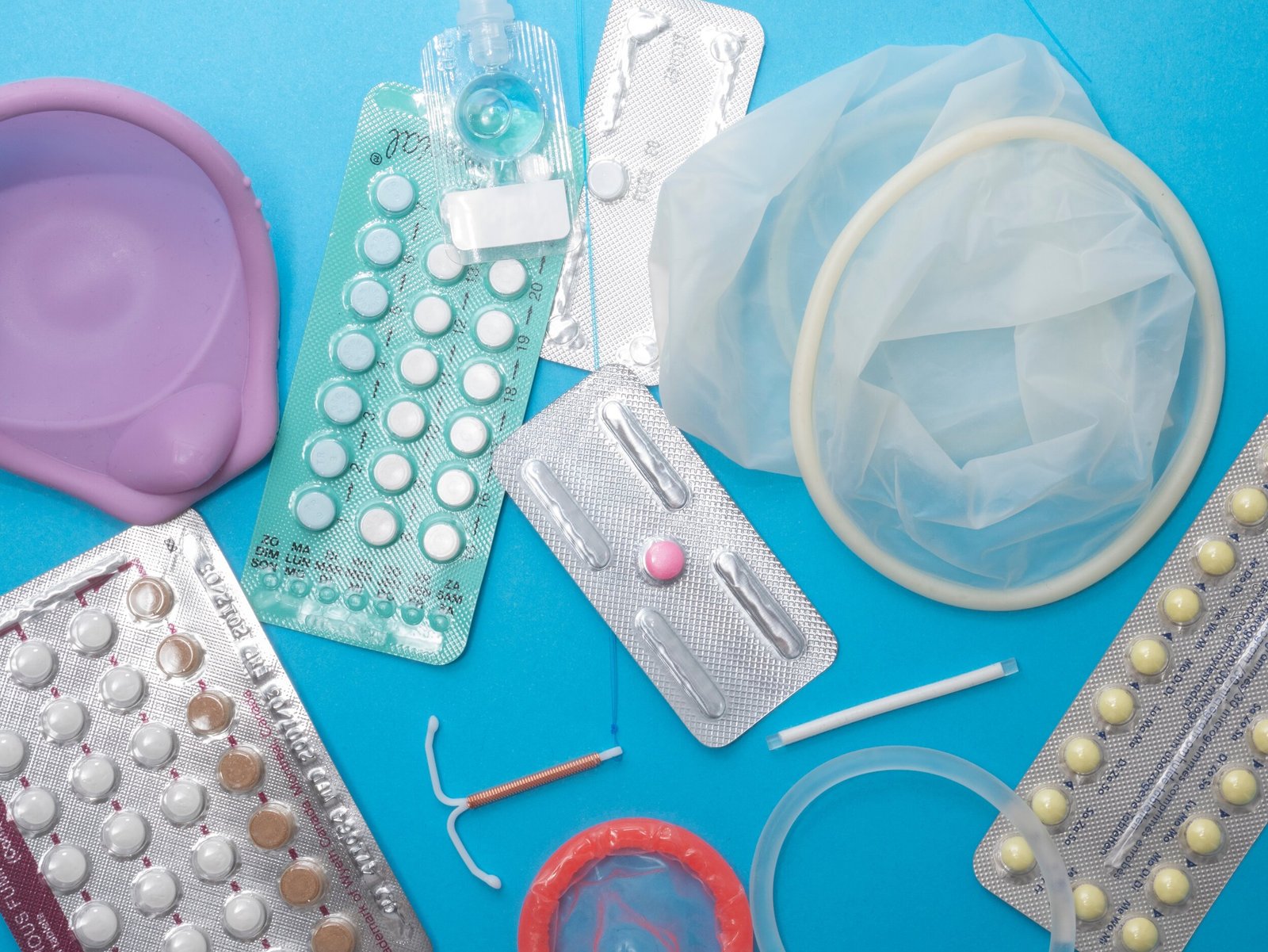News
Use of contraceptives among adolescent into first sex low- Research reveals

It has emerged from a research published in 2024 that the overall use of contraceptives among young people during their first sexual encounters is relatively low.
According to the research, large portions of both men and women interviewed from the Northern and Ashanti regions reported not using any contraceptive method for the first time.
The research, conducted by the USAID in 2022 sought to dissect the stage of life that marked the transition from adolescence to adulthood.
This stage of life is a great opportunity and vulnerability as they begin the establishment of romantic and sexual relationships, both within and outside of marriage and where youth often first encounter both the excitement and joys that comes with these relationships and their associated potential risks.
And with their little or no experience, it is expected that they indulge in all the safety and protective protocols to remain safe.
The report, however, indicated otherwise.
According to the study, many couples did not discuss or plan for sex, which implied that they also did not discuss using contraception.
The reason for this was because while others lacked knowledge about contraception, some also felt they were not able to make choices about using contraception themselves.
A few were also identified to intentionally choose to not use contraception.
Giving more reasons, a number of the male respondents attributed those decisions to perceptions that it was not possible for the women to become pregnant the first time she had sex.
Others ignore contraceptive use in order to ease pressure from their families to produce a child.
For the female respondents, they deferred the decision about contraception to their male partners, often because of an assumption that males had greater knowledge.
Others, according to the report, had limited interest in using contraception, often for nonspecific reasons while others actually wanted to get pregnant and intentionally chose to not use contraception for that reason.
The report also revealed that some participants that did not use contraceptives for their sexual debut, however, used them in their subsequent sex, a situation commonly reported among females than males.
The report also made startling revelation about how women described sex as transactional to get a few favours.
According to the report, sex was not all about emotions and a demonstration of love but clearly, a transaction in exchange for school fees, lodging, or food.
These transactional relationships, where there was an expectation of sex in return for money or gifts, was categorised as high coercion.
“Even within these transactional relationships, respondents often described the goodness of their benefactor, and spoke of how they trusted them and how those feelings factored into the decision to have sex,” it added.
The research also reported a variation in motivations for first sex from being curious to wanting to express the depth of love for a partner.
For many respondents, sex was seen as a demonstration of love, and of the commitment or seriousness attached to the relationship.
However, there were a range of ways in which this was experienced in relationships.
The study further said, for individuals who had their first sex within a romantic relationship but before marriage, having sex for the first time was seen as a way of establishing a relationship.
Others also saw sex as a way to create a bond and establish a relationship.
“Beyond establishing a relationship, other respondents described having sex as a sincere demonstration of love and commitment between two people, especially among those who were in a relationship but not married at the time of first sex,” it stated.
It said in other cases, sex was used as an internal pressure to prove one’s love to the partner.
By Spectator Reporter
News
Prioritise affordable treatment of sickle cell treatment —Health Expert

Health experts have urged Ghana to prioritise affordable and accessible treatment for sickle cell disease (SCD) as advanced, but costly curative therapies remain out of reach.
SCD, an inherited blood disorder, affects about three in every 100 newborns in Ghana.
Globally, around 1,000 babies are born with the condition daily, with three-quarters in sub-Saharan Africa.
The disease causes severe complications including chronic pain, anaemia, infections, strokes and organ damage, often leading to shortened life expectancy.
In recent years, gene therapy has been developed as a potential cure.
However, its cost—running into millions of dollars per patient—makes it financially and technically inaccessible in Ghana.
According to Dr Lawrence Osei-Tutu, a Sickle Cell and Childhood Cancer Expert at the Komfo Anokye Teaching Hospital, “the country must instead focus on practical, lower-cost interventions such as hydroxyurea”, a decades-old cancer drug proven to reduce painful episodes, hospitalisation and life- threatening complications in SCD patients”.
Taken orally, the medicine improves red blood cell function and is considered safe and effective.
“Hydroxyurea therapy is as good as the cure and a low-hanging fruit to pluck, we must bring a cure to our sickle cell warriors, but do so sustainably.” he urged.
In a chat with The Spectator here, he said to create awareness on the disease, the expert noted that despite its benefits, “hydroxyurea is not widely accessible in Ghana.”
Stressing that, “many patients either cannot afford it or struggle with irregular supply through the health system.”
Moreover, he argued that scaling up access would provide immediate relief while the country builds the infrastructure, trains specialists and secures funding needed to support curative therapies in the future.
With an estimated 15,000 babies born with sickle cell disease annually in Ghana, Dr Osei Tutu cautioned that “failure to improve access to effective treatment will leave many patients vulnerable to preventable complications and early death.”
From Kingsley E. Hope, Kumasi
Join our WhatsApp Channel now!
https://whatsapp.com/channel/0029VbBElzjInlqHhl1aTU27
Hot!
Let’s reintroduce Cultural Studies to complement educational reforms — Tourism Minister

Madam Abla Dzifa Gomashie, the Minister of Tourism, Culture and Creative Arts, has emphasised the importance of reintroducing Cultural Studies in schools as part of Ghana’s broader educational reform agenda.
She said Cultural Studies would complement existing efforts to reposition Science, Technology, Engineering and Mathematics (STEM) and Technical Vocational Education and Training (TVET) to promote digital literacy and expand Creative Arts education.
Speaking at the 2025 Homowo Festival of the people of Ningo-Prampram, held on the theme: “Education: The Best Legacy for our Children,” Madam Gomashie said cultural education was critical to national identity and development.
She noted that the festival’s theme aligned with the Government’s vision to transform education in Ghana and encouraged the youth to embrace it not only as a means of personal development but also as a way of preserving traditional values.
These values, including patience, wisdom, and hard work, were at the core of the Homowo celebration, the Minister said.
“Cultural festivals like Homowo are vital instruments for strengthening cultural identity, preserving historical memory, and fostering national unity. Additionally, festivals serve as platforms for educating the youth through storytelling, music, dance, and other traditional practices, while also providing opportunities for community engagement.”
Madam Gomashie highlighted the strong foundation that Ghana’s tourism was built on, which included culture, traditions, and the creative industry, collectively contributing to over GH¢4.8 billion to the economy.
“Festivals give tourists reasons to visit our country. Therefore, with the right infrastructure and the development of all the domains, the sector can do more than what has been recorded,” she added.
Mr Sam Nartey George, the Member of Parliament for Ningo-Prampram and Minister of Communication, Digital Technology and Innovation, commended the community for their vibrant participation in the festival. He announced plans for the construction of a new nursing training school in Ningo, aimed at expanding access to healthcare education in the area.
Nene Osroagbo Djangmah XII, Paramount Chief of Great Ningo Traditional Area; King Dr Tackie Teiko Tsuru II, Ga Mantse; Nene Tetteh Wakah III, Paramount Chief of the Prampram Traditional Area; Prof. Odaifio Welentsi III, Paramount Chief of the Nungua Traditional Area; Naana Dugbakuwor Dugba II, Paramount Queen Mother of Great Ningo; and Mr. Elvis Afriyie Ankrah, Special Envoy on Religion and Inter-Faith Affairs, who represented the Chief of Staff, were among dignitaries at the festival. -GNA














